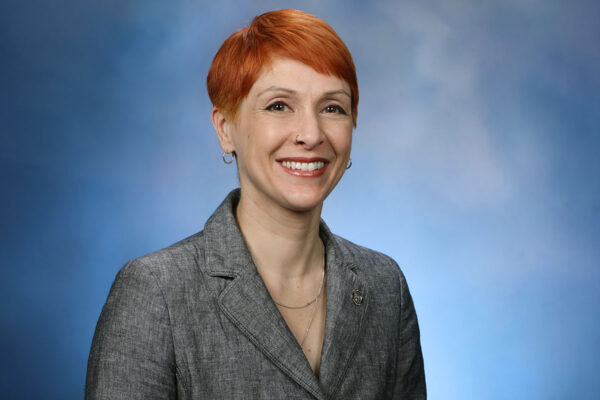
Michigan House of Representatives
Rep. Emily Dievendorf, D-Lansing, has proposed a bill of rights for homeless Michigan residentsBy ELIJAH TAUB
Capital News Service
LANSING – Most students can live on campus or nearby without much worry, and the years spent attending college are supposed to be filled with new experiences and opportunities.
That might seem like a given, but some students are severely impacted by their lack of stable housing.
Student homelessness is often overlooked because it can be hard to spot, and can exist in various forms.
“Often, the students who have obstacles to housing encounter temporary homelessness to permanent homelessness, depending on the time of year, if the university can’t provide housing,” said Rep. Emily Dievendorf D-Lansing.
“That, of course, isn’t okay, and housing is conducive to an education,” she said.
Dievendorf introduced legislation last July, which would establish a state bill of rights for the homeless. The bill is awaiting action in the House Economic and Small Business Committee.
The proposal would ensure that a resident’s rights, privileges and access to public services can’t be denied strictly due to being homeless. Itl says the homeless deserve and should get the same rights as any other resident, including the right to vote, a reasonable expectation of privacy and emergency medical care.
There are some students without a place to stay in Michigan and across the country.
For example in California, the state Homeless Coordinating and Financing Council reported in 2019 that 12% of community college students and 9% of university students had been homeless over a 12-month period nationwide.
“I would like to see us work more closely with our colleges and universities to ensure that we are guaranteeing shelter in alternative ways on campus and off campus,” said Dievendorf.
Northern Michigan University has already worked toward that goal for its students in need since opening the NMU Food Pantry in 2017.
In addition, Community Action Alger-Marquette offers programs to contribute towards ending homelessness in the Upper Peninsula. Its goal is to help low-income people become self-sufficient.
“Students have to be able to come forward themselves and talk to the universities so that the university can help them,” said Mia Murphy, the chief policy officer of the Michigan Association of State Universities.
If the administration does not know a student’s situation, it can’t help. On-campus programs and resources for housing are designed to be sought out, but struggling students might not reach out.
“There might be resources available, but if students are trying to keep it quiet or float from couch to couch, it’s harder to deliver any sort of resources that might be available,” said Murphy.
One reason that students may not tell administrators about their housing status is the stigma surrounding homelessness.
Dievendorf said it’s not a choice to be homeless, and many people associate it with negative connotations.
“Often our conversations about housing are not nuanced enough, and addressing housing and homelessness requires that we get to the root causes of homelessness,” she added.
Preconceived ideas and stereotypes about homeless people further contribute to the exclusion that homeless people face, and such stereotypes can lead to misinformation about them, discrimination and violence.